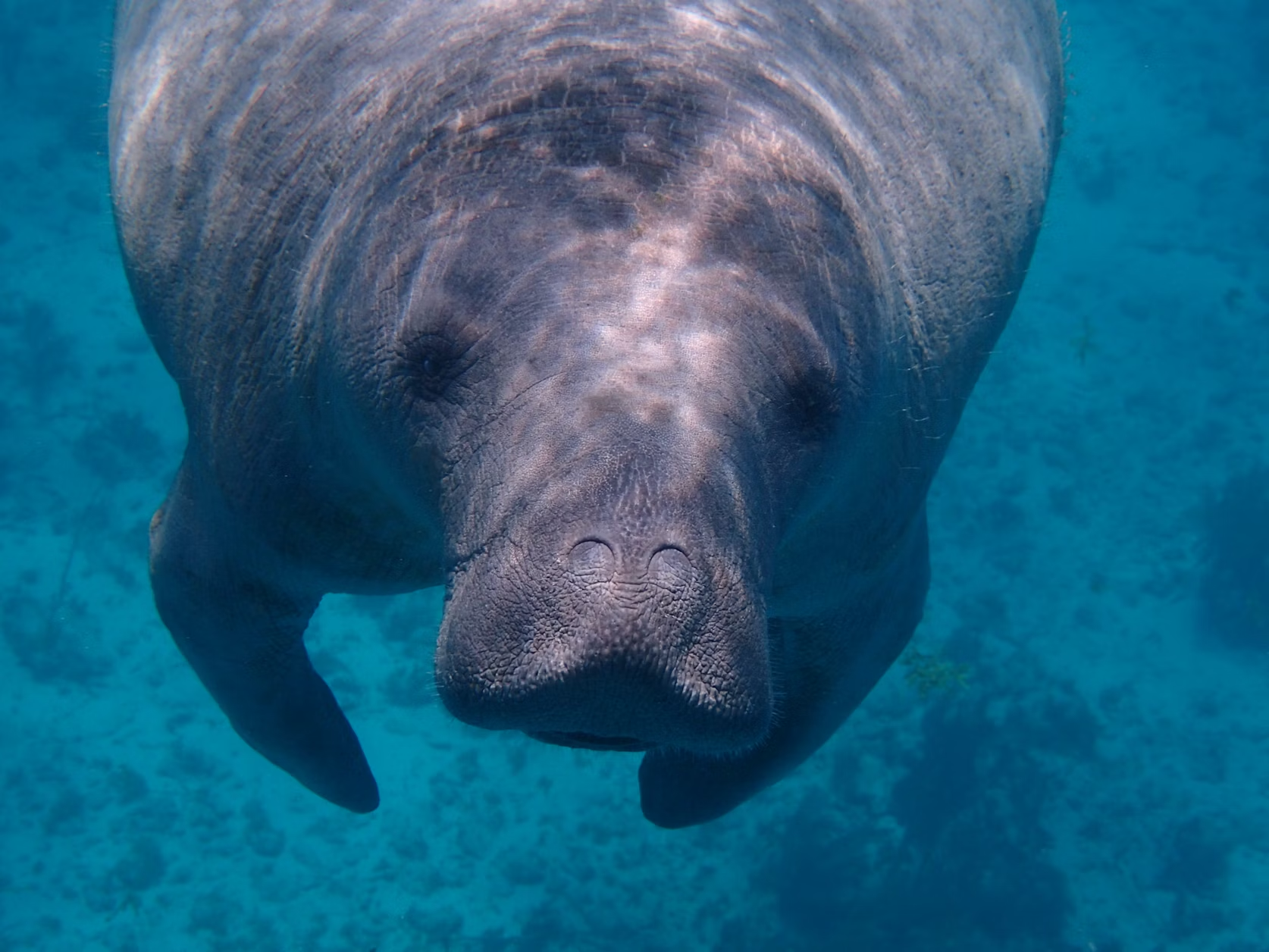In late July of this past year (2025), Cape Cod received an unexpected visitor in its marine environment. A single manatee was spotted near the tidal flats near Mattaposiett, Massachusetts, during low tide. Just as quickly as the tide went out, when it came back in, the manatee was returned to deeper waters. These species have been monitored for their declining numbers, but ever since January of 2025, Florida’s Center for Biological Control has denied endangered status for this species under the Greater Endangered Species Act. Manatees are native to warmer and tropical waters, closer to areas such as Florida and the Caribbean, so seeing one in the northern region of New England was quite a surprise for many people.
This specific sighting of a manatee resonated strongly with the community, as it was the second one sighted in the same week. Just four days earlier, this same manatee was spotted near Mashpee, Massachusetts. In the past 17 years, Massachusetts has only had four manatee sightings, including these. The last one was in 2016, when IFAW’s (International Fund for Animal Welfare) marine mammal rescue team rescued a pregnant manatee named Washburn. They worked with Mystic Aquarium, the US Fish and Wildlife Service, and the Coast Guard to monitor and rehabilitate Washburn, and ultimately, she was returned to her native warmer waters of Florida.

A manatee, like Washburn, in its natural tropical habitat. (image credit: https://unsplash.com/photos/mother-manatee-and-calf-swimming-8EXZXZrj3Tw via NOAA)
While this sighting is surprising, it also reflects a broader ecological shift. As of now, the IFAW is working with the US Fish and Wildlife Service to monitor the spotted manatee’s behaviors and route to ensure its safety. This spotting provides firsthand evidence of how warming waters are affecting marine life, and tells us that our waters need some help. This phenomenon has become increasingly severe as time goes on. Over the course of the last 20 years, more and more species of marine mammals and fish have been traveling and migrating north through the Gulf Stream in the warmer seasons. The reason for this migration is due to the warming temperatures of the ocean.
As the sea temperature rises, more and more species migrate north in search of cooler habitats. This shows us that some species possess a negative evolutionary response to warmer sea temperatures because instead of migrating back and forth between the tropical waters and the northern colder waters, these species get stuck up north. This means that once they make it up north, they don’t repopulate and live in the cooler waters until it gets cold. Once it gets too cold, they perish, and when it gets warm again, more species of tropical fish migrate north, and the cycle repeats. This phenomenon is a recent issue, and scientists are still observing why this is happening and conservation projects to help prevent this. This is very similar to the manatees, as they are migrating up here in search of warming waters, but there are no reports of population growth in the cooler northern waters. If you ever spot a marine mammal in need of help in the Cape Cod area, contact IFAW’s hotline by text or phone at 508-743-9548.
Featured Image: https://unsplash.com/photos/gray-sea-cow-under-water-UDdt74azlig via Olympus Corporation
